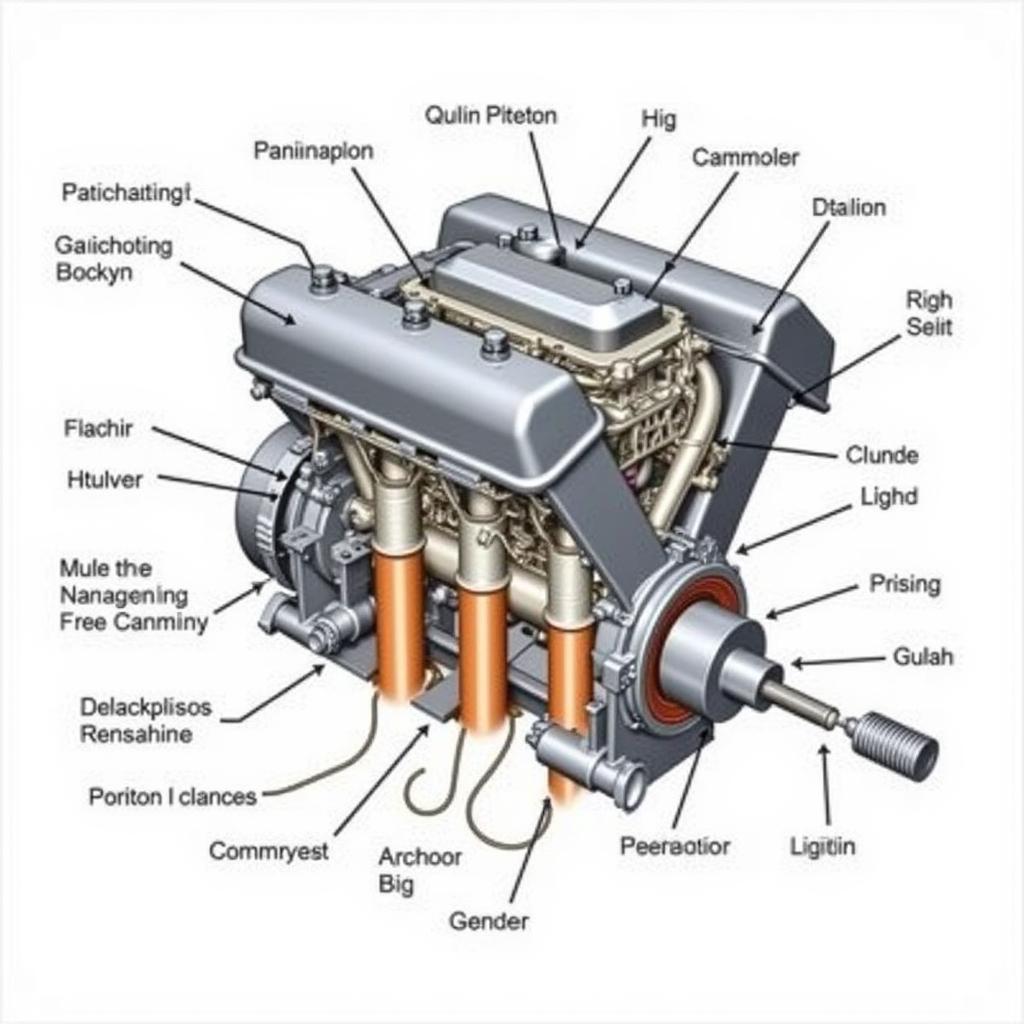Knowing your car’s details is crucial, whether you’re buying, selling, or simply maintaining your vehicle. Understanding these details empowers you to make informed decisions about your car’s upkeep, potential resale value, and overall ownership experience.
Decoding Your Car’s Vital Statistics: VIN, Make, Model, and Year
The most fundamental car details start with the Vehicle Identification Number (VIN), a unique 17-character code that acts like your car’s fingerprint. This alphanumeric sequence reveals the manufacturer, model year, engine type, and even the factory where it was assembled. Decoding the VIN is like unlocking a treasure trove of information about your car’s history. Beyond the VIN, the make, model, and year are equally important, identifying the brand, specific type, and production year of your vehicle. These details are essential for everything from ordering the correct parts to understanding your car’s performance capabilities. Understanding these basics is the first step in truly knowing your car.
Similar to how to know my car insurance details, understanding the VIN can clarify many aspects of your car. This information is especially helpful when buying a used car, allowing you to verify its history and avoid potential scams. Knowing your car’s make and model allows you to compare it with similar vehicles and understand its market value. The year of manufacture helps determine the car’s age and can influence insurance premiums and potential maintenance needs.
Unraveling the Mechanical Mysteries: Engine Specifications and Performance Data
Delving deeper into car details involves understanding the engine specifications, including the engine size, horsepower, torque, and fuel type. These details dictate your car’s performance, fuel efficiency, and overall driving experience. Knowing the engine size helps you anticipate fuel consumption and performance capabilities. Horsepower and torque figures provide insights into the car’s acceleration and towing capacity, respectively. The fuel type is essential for selecting the correct fuel at the pump and understanding the car’s environmental impact. This knowledge empowers you to appreciate your car’s mechanical capabilities and make informed decisions about its maintenance and operation. For instance, understanding the recommended oil viscosity for your specific engine is crucial for proper lubrication and longevity.
Knowing your car’s engine details can also help you anticipate potential maintenance needs. This can be particularly valuable when purchasing a used car, as it allows you to estimate future repair costs.
 Car Engine Specifications Diagram
Car Engine Specifications Diagram
Exploring the Features and Options: Trim Levels, Packages, and Technology
Car details extend beyond the mechanical aspects to encompass the features and options that enhance comfort, convenience, and safety. Different trim levels offer varying combinations of features, from basic amenities to luxury upgrades. Understanding the specific trim level of your car allows you to appreciate the features included and potentially explore available upgrades. Packages bundle together related features, such as a technology package that might include navigation, a premium sound system, and advanced driver-assistance systems. Knowing which packages are included in your car enhances your understanding of its capabilities and value.
For those looking to delve deeper into specific car models, resources like how to know hyundai creta 2018 car service details and how to know hyundai car service details can provide valuable insights. These resources offer detailed information on specific car models, making it easier to understand their features, maintenance schedules, and overall performance.
Accessing Car Details: Where to Look and What to Expect
Where do you find all this crucial information? The owner’s manual is the first place to look, providing a comprehensive overview of your car’s specifications, features, and maintenance schedule. Online resources, such as the manufacturer’s website or reputable automotive databases, can supplement this information with further details and historical data. For used cars, vehicle history reports can reveal crucial information about previous accidents, repairs, and ownership. Finally, a professional mechanic can conduct a thorough inspection and provide a detailed assessment of your car’s condition.
Conclusion
Knowing your car details is not just about understanding its mechanical workings; it’s about empowering yourself as a car owner. By understanding the VIN, engine specifications, features, and available resources, you can make informed decisions about maintenance, repairs, and upgrades. This knowledge can also help you negotiate a fair price when buying or selling a car and ultimately enhance your overall ownership experience. Remember, the more you know about your car, the better equipped you are to enjoy it to the fullest.
FAQ
- What is the VIN and why is it important?
- How can I find my car’s engine specifications?
- What are the different trim levels and packages available for my car model?
- Where can I access a vehicle history report?
- How can a professional mechanic help me understand my car’s details?
- What is the importance of knowing my car’s service history? Just like how to know car insurance details, knowing your car’s service history can protect you from future problems.
- How can I find details about car ownership? Information about car ownership can be found through resources like how to know car owner details.
Need further assistance? Contact us via WhatsApp: +1(641)206-8880, or email us at [email protected]. Our customer support team is available 24/7.

Leave a Reply